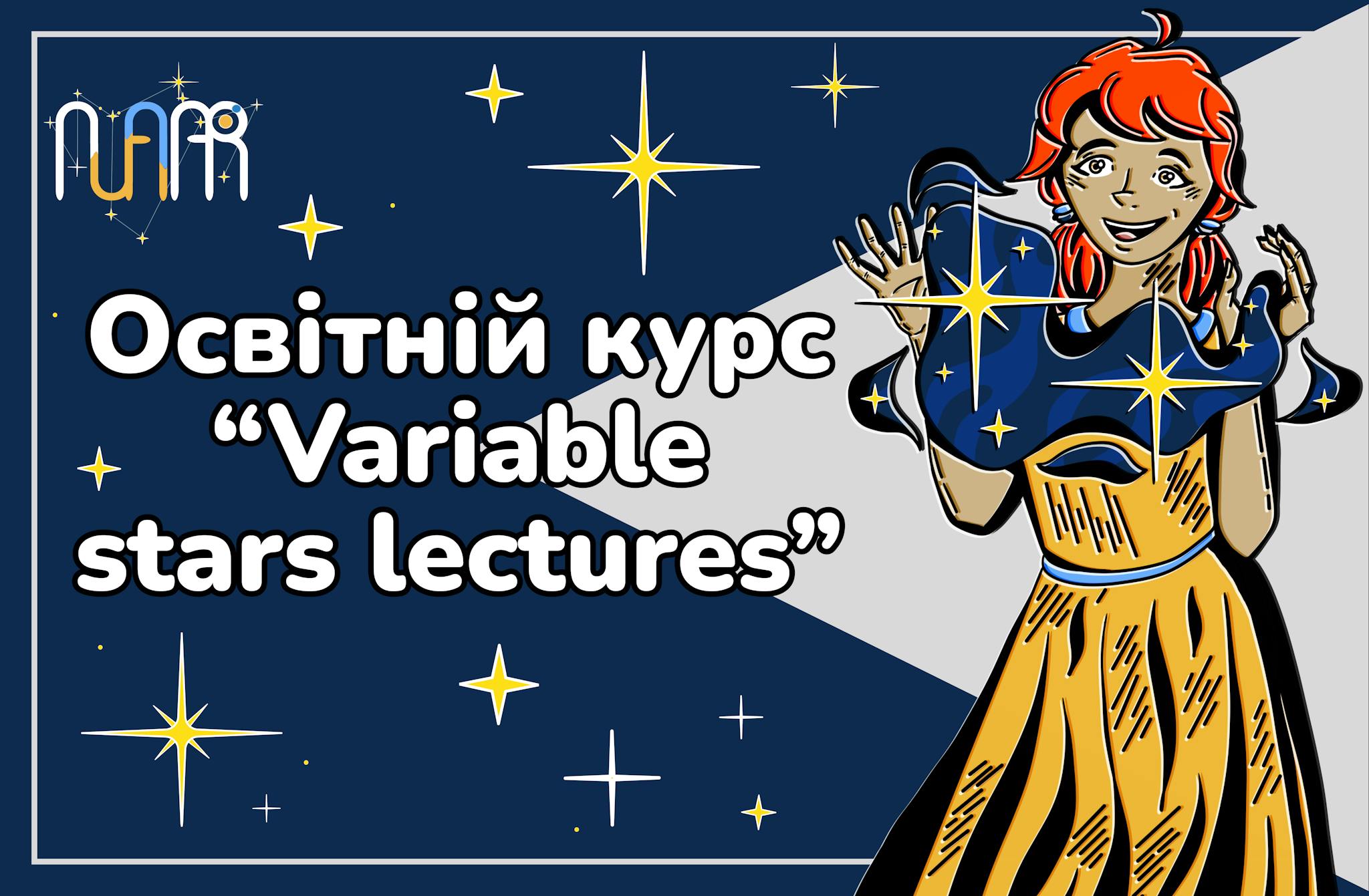Variable Stars Lectures

Some figures
Start date: January 1, 2023 (the first version); July 17, 2023 (the second version)
End date: March 20, 2023 (the first version); in the second version, training of students is continuous, the duration of each stage of training coincides with the duration of the appropriate project TESS-UA.
Participants: 60 (the first version) + 69 (the second version, as of October 10)
Project goal and tasks
Goal – to create a lecture course for future participants of the scientific project to give them appropriate basic theoretical knowledge for providing scientific research.
Tasks:
Create the concept, choose the lectures’ topics, and plan the course.
Make the presentations, record lectures and publish the video.
Create Google Forms for each lecture, which contains:
lecture contents;
video link;
references to additional literature;
tests (in most cases);
wrapped field for students' feedback.
Develop a website accessible for students to find all necessary information.
Perform the promotion campaign and recruit participants.
Provide the study using this lecture course and additional literature sources.
Compute tests’ scores and evaluate open-formed questions.
Give certificates to the participants who finished the course, divide the participants in the scientific project according to their qualification and motivation.
Task 1 – successfully finished, tasks 2-6 and 8 – work in progress, task 7 – planned.
Key organisers and project executors
The first version of the course:
Dmytro Tvardovskyi, Mykyta Bilodid, and Oleksandra Pyshna are coauthors of the course (concept, video recording, montage, creation of Google Forms and the website) and mentors for the students.
Olena Shubina provided technical support with the revision of tests and certificate sending.
The second version of the course:
Yaryna Holoshchuk – responsible for general management, tasks assignment, and certificate sending.
Dmytro Tvardovskyi – responsible for making the presentation and writing lecture texts.
Valentyna Babur and Viktoriia Borshchenko – mentors, responsible for the sound recording lectures.
Olena Shubina, Valentyna Babur and Viktoriia Borshchenko – responsible for technical support with the revision of tests.
Expected outcomes
From 50 to 100 students who would have completed the course in 2023.
From 20 to 50 students who would have completed the course successfully scored more than 50 points.
Development of a system for creating courses of lectures on astronomy.
Creation of a system of comprehensive education and training of participants in scientific projects.
Increasing the percentage of participants who successfully complete research from 25-45% without training to over 75% after training.
Project conclusions
In the course's first iteration, some shortcomings were found, from technical (problems with sound, broken file download links) to an insufficient number of test questions to consolidate the material. In total – about 15 points. Also, many students voiced a critical lack of text materials. Considering the experience of the course's first iteration, the second one is created, in which all the shortcomings of the previous version will be absent. In addition, a complete introduction and a short description of future scientific research were added to the already existing course.
Message from the CEO of NUAAR
As our very first project, TESS-UA-2022 has already shown, the participants' training level is critically essential and usually critically low. It concerns theoretical training (knowledge of the stars' variability and which buttons to press in the programs) and moral and psychological conditioning. It does not depend on age, gender, or the program a person is studying at the university. Motivation and perseverance are worth more than the level of preparation at the time of applying for participation in the project. In some places, students in the 9th grade without any experience did better than the winners of the International Astronomy Olympiad.
The experience of astronomy olympiads helps only partially. On the one hand, this is additional knowledge, which is much more profound and in more areas than those who have never participated in Olympiads. On the other hand, the moral readiness for the fact that the results will not be today or tomorrow but in a few months is critically lacking in most Olympiads. This fact does not mean they fail, but long research is much more difficult for them. On the contrary, the Junior Academy of Sciences participants confirmed the initial hypothesis that they cope with such long-term and multi-stage tasks more efficiently.
At the same time, the experience of two scientific projects (TESS-UA-2022 and 2023A) showed that training, regardless of the initial level, should be pretty long and consist of several stages. Variable stars are a relatively simple topic, but at the same time, it is quite specific. Many processes here are not intuitive, and some particular types of calculations are found only in studying variable stars. However, they have analogues in other branches of astronomy and science in general. The research itself is not so complex. On the contrary, it is one of the simplest among those that can obtain results of a sufficient level of scientific novelty for publication in a peer-reviewed journal. But it consists of many stages (about 20) and therefore is quite long. That is why we work and hope that the course of lectures and our additional literature will help future scientists in their first research.
Related projects
Variable Stars Books
TESS-UA-2023A
TESS-UA-2023B and more
